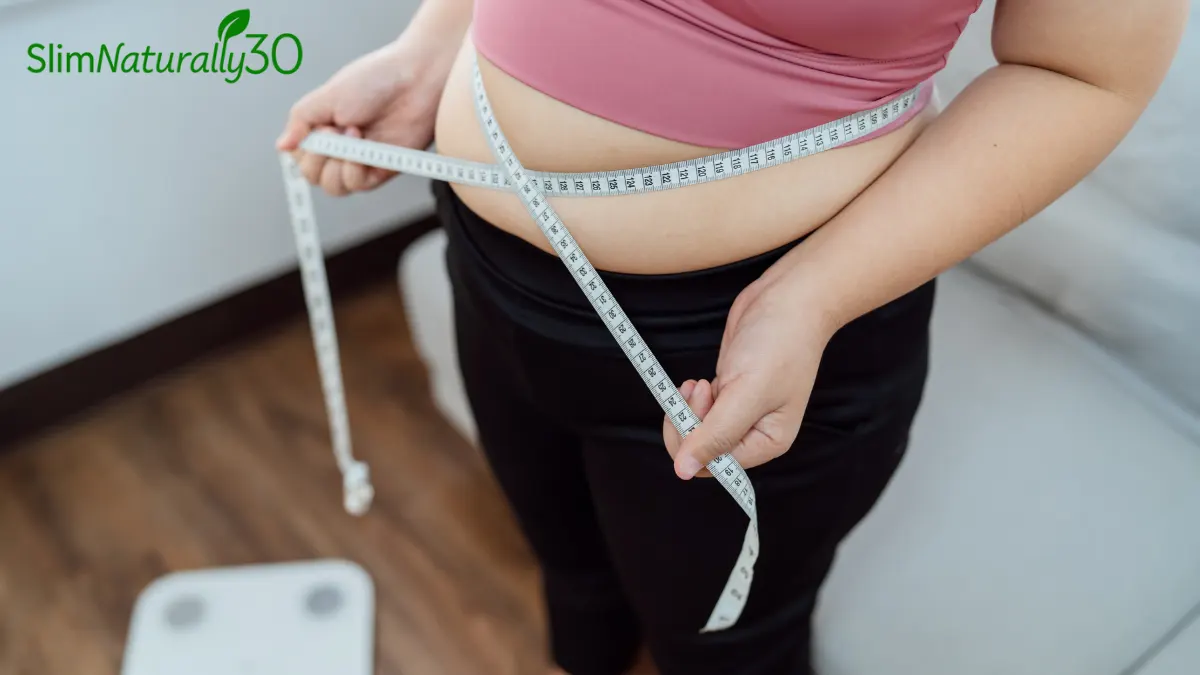
Some days, I'd look in the mirror and whisper, "Why is this not working anymore?"
I blamed myself. Maybe I was stressed. Maybe my metabolism was just… broken. But deep down, I knew something had changed—something no one talks about until you're already in it.
Why Losing Weight After 30 Is So Different

Why Losing Weight After 30 Is So Different
The truth? After 30, our bodies start shifting in subtle but powerful ways.
- Hormonal changes—Estrogen and progesterone begin to fluctuate, affecting fat storage, mood, and cravings.
- Muscle mass declines—and with it, your resting metabolic rate slows down.
- Cortisol creeps up—especially with chronic stress, making belly fat stubborn and harder to shed.
- Sleep quality drops—and sleep is directly tied to appetite regulation and fat burning.
It's not about being lazy. It's biology. And no one hands you a manual for this new metabolism.
What Used to Work, Doesn't Work Anymore
I used to just skip dinner for a week and the scale would drop. Now? I skip dinner and wake up bloated, moody, and exhausted.
I tried doubling my workouts. Cutting carbs. Intermittent fasting. But the more I pushed, the more my body pushed back.
Eventually, I stopped blaming myself and started asking different questions:
- "What if I'm not failing—what if my body is just evolving?"
- "What if this isn't about willpower—but about wisdom?"
And that's when everything started to shift—not just my weight, but how I treated myself.
The Strategies That Actually Worked (and Didn't Break Me)
Once I stopped chasing overnight results and started tuning in, I found a rhythm that worked—for me.
- Protein-first meals: I didn't cut food—I just started with what fueled me best.
- Walking after meals: 10 minutes, twice a day. That's it. It helped my digestion, my mood, and my sleep.
- Lifting 2× a week: Not heavy. Not punishing. Just enough to wake up muscles that had gone quiet.
- Sleep > Hustle: I gave up the late-night "catch-up" and started protecting my wind-down time like gold.
- Gut support: I added probiotics + LeanBiome, and the bloating fog started to lift.
This wasn't a reset. It was a recalibration. Not perfection—just permission to do things differently.
It Wasn't My Fault. But It Was My Responsibility.
For years, I blamed myself: for being tired, slow, moody. I thought I lacked motivation or discipline.
But the truth was simpler—and more empowering:
"Your metabolism isn't broken. It's just been adapting to your life."
That hit me like a brick. My body wasn't fighting me. It was surviving me—stress, lack of sleep, restriction, expectations.
And the moment I saw it that way, everything softened. I stopped "fighting" my metabolism and started feeding it.
More rest. More protein. Fewer toxic thoughts. Less guilt over "slow" progress.
I realized this wasn't a battle to win. It was a relationship to rebuild—with myself.
What Helped Me Rebuild My Metabolism Gently
After trying every hack—lemon water, morning fasted walks, eating every three hours—I was exhausted.
Then I read about LeanBiome. It wasn't some miracle pill. It simply supported gut balance and metabolic health, using probiotic strains backed by research.
And that felt… kind. Gentle. Like a friend offering help—not a coach screaming orders.
I added it to my routine—not expecting magic, but hoping for support. Within weeks:
- My bloating eased up.
- I stopped craving sugar like a maniac every 3pm.
- And I had enough energy to get through the day without an emergency nap.
No, it didn't change my life overnight. But it helped me feel like I wasn't alone in the process.
Your Metabolism Isn't Broken. It's Just Tired.
What I learned is this: After 30, your body doesn't rebel—it whispers. The signs are subtle at first: a little extra belly fat, feeling drained after lunch, craving things you didn't used to. We're taught to "push harder" when maybe we just need to listen closer.
Rebuilding metabolism isn't about punishment. It's about partnership—with your gut, your hormones, your rhythms. It's about restoring trust with your body, one small step at a time.
"Weight loss after 30 isn't a sprint. It's a conversation between you and your biology."
And you don't need to overhaul your life to start. Just one thing—a supportive habit, a better snack, a little more sleep. That's how momentum builds. That's how metabolism comes back.
FAQs – You Might Be Wondering
Is it normal for metabolism to slow after 30?
Yes. Hormonal shifts and muscle mass decline can naturally lower metabolic rate. But lifestyle changes can still make a big impact.
What's the connection between gut health and metabolism?
Your gut influences how efficiently your body extracts energy, regulates hormones, and handles cravings. A healthy gut can help rebalance metabolic function.
Do I need a supplement like LeanBiome?
Not necessarily—but many women find that probiotic support helps reduce bloating, stabilize cravings, and support energy. It's a tool, not a magic fix.



